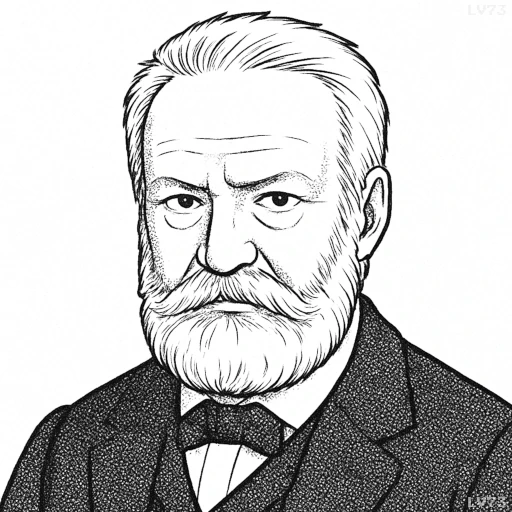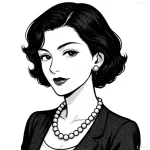“Fashions have done more harm than revolutions.”

- February 26, 1802 – May 22, 1885
- Born in France
- Author, poet, playwright
table of contents
Quote
“Fashions have done more harm than revolutions.”
Explanation
Victor Hugo’s quote suggests that the influence of fashions—trends in clothing, behavior, or ideals—can be more destructive or subversive than the societal upheaval brought on by revolutions. While revolutions are often marked by open conflict and change, leading to the potential for progress or transformation, fashions operate more subtly and pervasively, shaping societal values and behaviors in a way that can reinforce superficiality, conformity, and shallow ideals. Fashions, by their very nature, are transient and often serve the interests of the powerful by distracting the public from deeper, more meaningful concerns, leading to a loss of individuality and authenticity.
Hugo’s statement likely reflects his frustration with the power of societal norms and superficial trends, which can shape people’s identities and actions in ways that undermine their ability to think critically or act independently. While revolutions may bring about visible and dramatic shifts, often with the aim of addressing injustice, the influence of fashion can create a more insidious form of control, focusing attention on appearance rather than substance. Fashion, in this sense, can become a tool for maintaining the status quo, ensuring that people focus on external symbols of success rather than on the deeper issues of equality, morality, or social reform.
In modern times, Hugo’s words remain relevant as consumerism and the power of social media continue to shape people’s desires and behaviors. Fashions—whether in clothing, lifestyle, or ideals—can often perpetuate a cycle of emptiness and conformity, diverting attention from pressing social issues and encouraging a fixation on appearances rather than substance. Hugo’s critique encourages us to be mindful of the influence of trends and to prioritize deeper, more meaningful forms of change and self-expression over the fleeting and often shallow demands of fashion.
Would you like to share your impressions or related stories about this quote in the comments section?


